
THE VOICE OF INTERNATIONAL LITHUANIA
|
VilNews has its own Google archive! Type a word in the above search box to find any article.
You can also follow us on Facebook. We have two different pages. Click to open and join.
|
Exclusive VilNews interview with Professor Landsbergis, Veisaitė
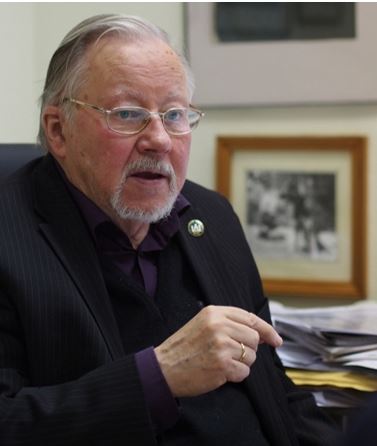 |
 |
PROFESSOR IRENA VEISAITĖ AND PROFESSOR VYTAUTAS LANDSBERGIS.
Photo: Patrick Murphy
Journalist: Dalia Cidzikaitė
Questions prepared by Aage Myhre
Today we have the pleasure of presenting a large, exclusive interview with two professors who have meant infinitely much for their homeland Lithuania. In today's interview, we focus on their memories, experiences of and thoughts about the following eras of their lives, over the years 1930-1960:
· CHILDHOOD IN KAUNAS, LITHUANIA’S INTERWAR CAPITAL
· MEMORIES OF ANTANAS SMETONA, LITHUANIA’S PRESIDENT 1926-1940
· PREWAR COMMUNISM IN LITHUANIA?
· ADOLF HITLER – NAZISM – PREWAR GERMANY
· TO BE A LITHUANIAN JEW (LITVAK) DURING WORLD WAR II
· THE LANDSBERGIS FAMILY RELATIONSHIP WITH JEWS
· LITHUANIA’S 9-YEAR BLOODY PARTISAN WAR AGAINST THE SOVIET UNION

PROFESSOR IRENA VEISAITĖ AND PROFESSOR VYTAUTAS LANDSBERGIS BEING INTERVIEWED BY DALIA CIDZIKAITĖ.
Photo: Patrick Murphy
KAUNAS CHILDHOOD
You were both born in Kaunas, Lithuania's capital in the interwar years (1920-1940),Professor Irena Veisaitė (IV) in 1928, Professor Vytautas Landsbergis (VL) in 1932. IV is the daughter of Jewish parents, VL son of genetic Lithuanian parents. These were the so-called happy years for Lithuania, after more than 120 years of occupation by Tsarist Russia. Were the years before World War II happy years also for you? Are there special childhood memories you would like to mention?
|
IV: It seemed to me that we had always been independent and I did not feel that our country was still so young. Parents sent me to the Yiddish high school, where the orientation was toward our homeland Lithuania and not Palestine. We studied history from Šapoka’s textbook. I was in love with Grand Duke Kęstutis. We sang “We will not relent without Vilnius,” and it took me quite a long time to get rid of the deep-seated anti-Polish sentiment. The biggest disaster of my childhood was my parents’ divorce in 1938. Adult conversations about Hitler and possible war caused me anxiety, fear, and sometimes nightmares. I used to have a recurrent dream that I was at Hitler's camp being forced to sit on his lap and say to him “Papi,” which means “Daddy.” I would wake up from not being able to utter that word. I had a safe and happy childhood. My father built a house on the corner of Trakų and Totorių streets; it is still there today. In 1936, he received a prize for the best residential house in Kaunas. Every summer we would go with my grandparents to Kulautuva on the Nemunas river. My parents would take me to the sea, to Palanga or Nida. My childhood was happy. |
 PROF. VEISAITĖS PARENTS, SOFIJA ŠTROMAITĖ-VEISIENĖ AND IZIDORIUS VEISAS, ON THEIR WAY TOONEYMOON, 1927. |
VL: My childhood years up until the beginning of the war were happy years. Our family lived together in an independent country, in a house built by my parents that served as a home for our family and a work place for them (my dad was an architect and my mom – a doctor). A couple of years before the war, my parents bought a plot near Kaunas, Kačerginė, and built a summer house there. And for me, still little boy at that time, the time spent in Kačerginė was the happiest of all times. The villa was situated between the very beautiful, wide, and calm river Nemunas and the pine forest. It was a clean river then, full of fish, where I would go fishing. I still consider Kačerginė my home.
MEMORIES OF ANTANAS SMETONA, LITHUANIA’S PRESIDENT 1926-1940
Antanas Smetona, who was Lithuania's autocratic President for the years 1926-1940, following a coup d'état in 1926, was also known as a prominent advocate for nationalism. Do you remember Smetona personally? How would you describe and assess the interwar years of an emerging economy and nationalism in Lithuania?
IV: I was born and grew up during Smetona’s presidency. At that time, the Jews were granted cultural autonomy. I learned about some existing nationalism in Lithuania only through my cousin Valdemaras Ginsburgas, who after graduating from the secondary school, in 1939, entered Vytautas Magnus University in Kaunas to study architecture. There he experiencedanti-Semitism from nationalist Lithuanian students. They insisted that Jewish students sat separately and only in the last rows. I think, there were also some fights. Only much later I had learned about the increase of anti-Semitism. President Smetona himself was not an anti-Semite. We loved him. And although we called him smetonėlė, grietinėlė (diminutives for ‘cream’ and ‘sour cream’), we did it with love and respect.
VL: I often stumble over the word ‘nationalism,’ which is used quite carelessly, not paying attention to its content, only associating it with the National Socialist Germany or with any xenophobic nationalism. However, the desire to liberate one’s country from foreign oppression and to build a national state cannot be condemned. It is a natural desire, especially in Europe, which for centuries was ruled by larger European empires and where nations suffered the oppression and tried to break free. This ambition to be free cannot be automatically assigned to negative nationalism. And because in Europe, hostile policy of larger states to smaller, and Lithuania in particular, existed, the elements of antagonism had arisen.
|
A SATIRICAL PICTURE FROM INTERWAR POLISH PRESS: A caricature of Polish Marshal Józef Piłsudski and a dog with the name Lithuania, criticizing Lithuanian unwillingness to compromise over Vilnius region. Marshal Piłsudski offers a sausage labeled "agreement" to the dog (with the collar labeled Lithuania); the dog barking "Wilno,Wwilno, Wilno, even if you were to give me Wilno, I would bark for |
Unfortunately, our larger neighbors, Poland, Russia and Germany, did not want an independent Lithuania. This caused a certain degree of emphasis on nationalism among Lithuanians. And sometimes, as in the case of Poland, which occupied Lithuanian capital, there were very specific moments when Poland and Poles were seen as the enemy, although we know that in the past, Lithuanians and Poles had quite friendly relations. The aggression toward Lithuania in the 20th century, had caused the hostility, which was mutual. And it certainly was felt. Not that I had seen or felt it among my friends. I did not even know that some among my classmates were documentary Poles. We were all equal then (laughs). Of course, there was some childish patriotism. I remember how my brother and his friend, both four and five years old at that time, set out to liberate Vilnius (laughs). They did not go too far... (laughs). President Smetona was not a hard nationalist, he even had very friendly relations with the Jews. Jewish community leaders and religious leaders respected him. |
PREWAR COMMUNISM IN LITHUANIA?
It was during the interwar years that Communist Party of the Soviet Union emerged. Also in Lithuania the party won its offshoot. What memories do you have about this and about the party leader Joseph Stalin who ruled the Soviet Union with an iron fist over the years 1920-1953? Would you say that the communists played a real role also in prewar Lithuania?
VL: The Communists under different guises and names first appeared in the 19th century in the former tsarist Russia. But their real creation was the Soviet Union, Lenin and Stalin’s doing, which openly expressed the hegemonic tendency to rule through the communist ideology in the future – not immediately the world, but first the neighbors. It is not widely known that during 20 years of Lithuania's independence, there had been 20 attempts, conspiracies and even the coup attempts with participation of communists. To add those of nationalist-hegemonist Poles, or pro-Nazi Germans. The tension reached its peak in 1926, when the rightist coup took place and the left-wing government had to withdraw because of its connivance or weak policy. The year of 1939 witnessed another shock. It came with the forced deployment of Soviet bases on the territory of Lithuania together with the return of Vilnius. This was already understood. But until then, until 1939, the communist threat had not been much felt and discussed in my close environment. Instead, the German threat was very clear, as well as the Polish ultimatum, and later, Hitler's ultimatum to surrender Klaipėda.
IV: I think in this case, my memories will be slightly different from Professor’s. We must remember that the existential situation of ethnic Lithuanian Jews, who were all Lithuanian citizens and I would say, patriotically minded, was very different from that of the ethnic Lithuanians at the time. Hitler and Nazis meant death to the Jews. The Russians were also bad, but there was still hope for survival. The interwar period was a different time and no one fully understood what the communists were capable of doing. Even the most famous European writers, who participated in 1937-38 show trials in the Soviet Union, did not comprehend what was going on. At the time, the communists in Europe were regarded as the strongest anti-fascist force and therefore they had support. In Lithuania, the Communist Party was banned and communists were jailed. My parents, especially my father, were supportive of communists. I know that he made financial contributions to the organization supporting political prisoners. Even Antanas Sniečkus [First Secretary of the Lithuanian Communist Party, 1940-1974] found shelter in our house. I was told that he was Cvirka’s [a Lithuanian author, who joined the Communist Party in 1940 and supported Lithuania's incorporation into the Soviet Union] cousin, who also frequented our home.
|
However, our family also knew other things about the communists. My aunt Polia, my mother's sister, married an engineer, Samuil Garzon, who together with his large family fled Leningrad at the end of 1920s and settled in Lithuania. He knew the Bolsheviks well and told us about the atrocities of their regime. We also learned that my father’s brother, David Veis, a communist who lived in Moscow and was an editor ofSmall Russian Encyclopedia, was arrested in 1937 and executed. But somehow all those facts had not fully sunk in. |
 ANTI-SOVIET AND ANTI-SEMITIC NAZI PROPAGANDA POSTER FROM 1941 IN LITHUANIAN LANGUAGE. Top text: "A Jew is your eternal enemy" Bottom text: "Stalin and Jews is one big |
ADOLF HITLER – NAZISM – PREWAR GERMANY
Can you remember the first time you heard the name Adolf Hitler and the term Nazism? When and how did you notice that Nazism gained a foothold also in Lithuania? Was it connected to the nationalism movement of Smetona and others? What about anti-Semitism?
VL: I was a little kid when I first heard about Hitler. It seems to me that we had never talked about Nazis then. It was Germany that was unfriendly, hostile, seeking to take Klaipėda from us. The National Socialist organizations, established in Klaipėda region, were supported and fed by Berlin, already Hitler's Germany by then. Klaipėda, our seaport, was taken away from Lithuania in March 1939. But it was Hitler and Germany, not the Nazi regime who did it. This kind of policy was understood as carried out and implemented by Germany and not some kind of organization.
IV: I make a distinction between the Germans and Nazis. Not all Germans were Nazis and in a totalitarian regime you cannot express openly your true feelings unless you are prepared to die for your convictions. This is relevant when talking about resistance to Stalin and Hitler’s regimes.
VL: Dear Irena, you give explanation of today's intellectual. In this way, we try to avoid blaming. We do not even mention Germany's name when we speak about those times, however, it was Germany and not the Nazi government behind all of that. Moreover, by being polite we distort history. We do not want to say that it was Germany that took away Klaipėda, we avoid saying that it was Germany that came in 1941 and occupied the rest of Lithuania.
This German aggression was terrible and unacceptable. By the way, it was the last drop for my father to officially decide to change his last name of centuries-old German origin. My father took his father’s, my grandad's, pseudonym, Žemkalnis, and it became his true name. When the Germans came, they blamed him for doing it, for being hostile to Germany.

PENKI LANDSBERGIAI – FIVE LANDSBERGIS: THREE VYTAUTAS AND TWO GABRIELIUS
(ON THE PORTRAIT – V. LANDSBERGIS GRANDFATHER GABRIELIUS LANDSBERGIS).
IV: I remember that in 1938, after my parents' divorce it was decided that I would spend the winters with my mom and summer holidays with my father. That year my father took me to Germany, Switzerland, Belgium and France.
That was my first big trip. I remember while in Berlin, we lived in a good hotel at Kurfuerstendam as Lithuanian citizens and my father told me that the fresh bread rolls with apricot jam and margarine we had for breakfast were not always available even to the Germans because of food rationing. He took me to Unter den Linden [a boulevard in the Mitte district of Berlin], which already had white and yellow benches. The Jews had the right to sit only on the yellow benches. My father sat down with me on the yellow bench and said, “We, as citizens of Lithuania, can sit anywhere, but we are also Jews and I want you to understand how it feels to be isolated and marked in society.” This stuck in my memory.
VL: I am very interested in what Irena said about the National Socialist attitude, the exclusion of Jews from society, even before Kristallnacht and concentration camps took place. That was a terrible thing. But this attitude came together with the German occupation of Lithuania. The decree by the German military government was issued to apply the same approach to Lithuanian Jews. And local Lithuanian government had to carry out the order. The exclusion of Jews from society was a consequent implementation of German policy. So when today people, who worked then in the Lithuanian administration, are accused of carrying out German military authority’s order and called the persecutors of the Jews, it is not quite just. Very often they, while carrying the order, privately tried to help the Jews.
TO BE A LITHUANIAN JEW (LITVAK) DURING WORLD WAR II
|
 |
IV: I have already written and spoken about it quite a lot. I still cannot understand how all this could have happened in Christian Europe and my homeland. I lost my mother, entire generation of my parents, grandparents, friends... Not everything was understood then in 1941, but the fear of death had accompanied us all the time from the very beginning. However painful it may be to admit, but the so-called baltaraištininkai [Lithuanian activists of the LAF, identified by their white armbands] were worse than the Germans, because they were very actively engaged in brutal anti-Semitic violence. But, of course, as prof. Landsbergis said, it would not have happened if not for nazi Germans, who, unfortunately, found very fertile soil in Lithuania for implementing their policy. It was a very difficult time, especially for Jews. But I have never, even in the most difficult times, blamed the nation. There were those who risked their own and their children's lives to save Jews. Prof. Landsbergis’ family is one of them. Just recently I read the article by Zigmas Vitkus, where he says that we cannot blame the people, because on one side, we had Impulevičius [Antanas Impulevičius-Impulėnas], a Lithuanian, who murdered Jews, and on the other, Ona Šimaitė, a librarian who rescued them. Prof. Landsbergis’ position during the first years of independence was, in my opinion, very human, saving Lithuanian national honour. I remember what prof. Landsbergis said on the occasion of the joint session of our Parliament with the Jewish delegation. He said that the Holocaust is not only Jewish but also the Lithuanian problem, that it is a tragedy for both nations. I was very impressed by his statement then.
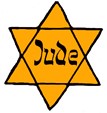 |
HOW I ESCAPTED FROM THE KAUNAS GHETTO In August 1941 all Kaunas Jews were imprisoned in the Kaunas ghetto. Irena stayed in the ghetto with her grand-parents and one aunt. Her mother had already been executed by the Nazis, and her father was living somewhere in the West. 7 November 1943 she managed, miraculously, to escape from the ghetto. Read the story at: https://vilnews.com/2012-12-love-and-hatred-2 |
 |
VL: I remember another incident with Mr. Zuroff [Efraim Zuroff, a Nazi hunter, director ofSimon Wiesenthal Center office in Jerusalem]. He reminded me about it quite bitterly many years after it happened. I gave him a photo album about the Lithuanian deportations to Siberia and said that this book is about our, Lithuanian, holocaust. I used it as a metaphor, not trying to make any historical generalizations. There was no dispute between us then, but after ten years, he wrote that I do not understand anything if I equate the sufferings of Lithuanians with the Holocaust, which, in his opinion, is unique and cannot be compared. I noticed that the Jewish society stands by the uniqueness of the Holocaust in its national and religious mentality. I will not argue with that. But when two million Tutsis in Africa are murdered, can this not be comparable to the Holocaust? And what about communism which is soaked in blood!? It killed more people, also by national reasons, than any other ideology in the world!
IV: We cannot live in the past and constantly blame each other. This is dangerous and inhumane. I was impressed by the visit of Shimon Peres [the President of Israel from 2007 to 2014] to Lithuania. According to him, we have a lot in common: Israel and Lithuania had a very difficult fight for independence; both countries have neighbors, which are not easy to deal with. And he also said that we must build a future and that we cannot live in the past all the time. Sometimes I have the impression that we in Lithuania are ready to die for our history (laughs) and very often we ignore the present. We have to cleanse ourselves and get rid of a chip on our shoulder. To me, Germans are a good example of how to deal with a very complicated, heavy past. I agree with prof. Landsbergis that the Holocaust in a sense, is a unique phenomenon, but today so many atrocities are taking place, so many mass killings all over the world, that we have to talk about all of it. Today, it is unacceptable to talk only about your own sufferings.
THE LANDSBERGIS FAMILY RELATIONSHIP WITH JEWS
Prof. Landsbergis, your family sheltered a Jewish teenager in the family home during WWII. For this act your mother was awarded the title of a Righteous among the Nations by Israel. You were only 8 years old when the war broke out, but perhaps you remember episodes, including what your family stood for regarding Jews?
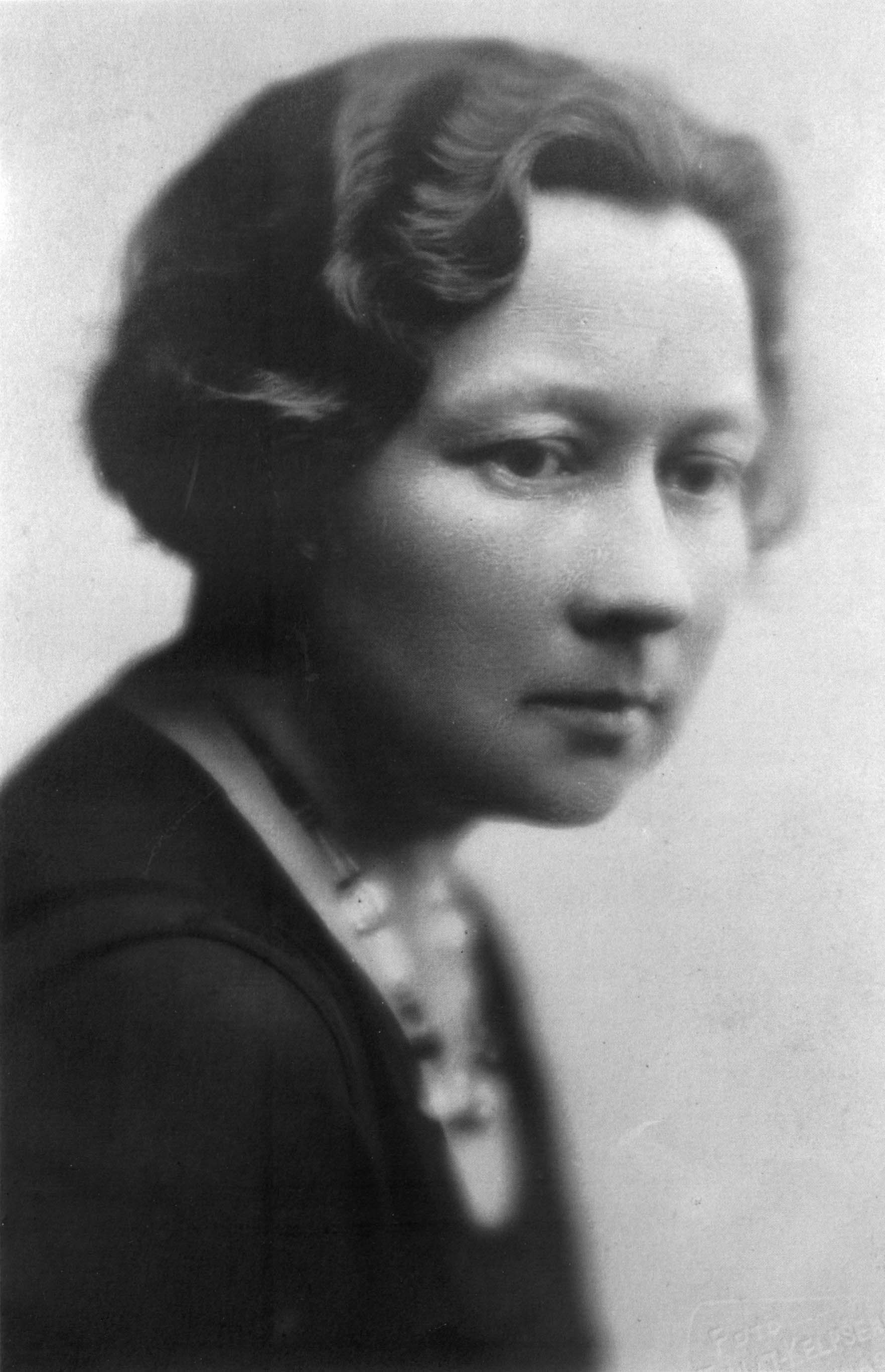 DR. ONA LANDSBERGIENĖ, 1930. |
As you so kindly recall that my mother was awarded the title of a Righteous among the Nations for rescuing a Jewish girl, I have to say that both my parents should have been awarded this title, because both of them rescued the girl. Both of my parents had a friendly relationship with many of the Jews, in the family and in their work environment, such as colleagues and co-workers in health and construction fields. After all, one of my aunt’s, Gurevičienė, was married to a Jewish doctor. To me Leonas Gurevičius was uncle Leonas. Thus, to save and help Jews was a natural act. My dad answered that question in the film Tzedek(Tzedek - Les Justes) about the rescuers of Jews in Europe by Marek Halter. He was almost surprised to receive the question:why? How could you not to, he said, it was natural. Although, everyone realized that it was also very dangerous. There were cases when entire families of saviors were subjected to shootings by the Germans. They could be imprisoned or sent to concentration camps.
|
LITHUANIA’S 9-YEAR BLOODY PARTISAN WAR AGAINST THE SOVIET UNION
The Lithuanian partisan war against the USSR in the years 1944-1953 are in recent times often referred to as modern Europe's longest and bloodiest civil war, with approximately 22,000 deaths on the Lithuanian side and about 70,000 casualties for the Soviet Red Army and NKVD (predecessor of the KGB). But while many among the so-called forest brothers became national heroes in Lithuania, there are others who argue that these men (and a few women) often were Nazi sympathizers who ran away to avoid deportation to Siberia. What can you say about the partisans?
 MODERN EUROPE’S LONGEST AND BLOODIEST GUERILLA WAR TOOK PLACE IN THE BALTIC STATES DURING THE PERIOD 1944 – 1953. IT IS ESTIMATED THAT 22.000 LITHUANIANS AND 70.000 SOVIET SOLDIERS DIED |
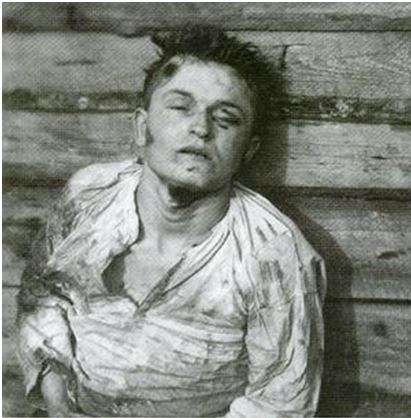 ONE OF THE MANY KILLED LITHUANIAN PARTISANS, JUOZAS LUKSA – "SKIRMANTAS", "DAUMANTAS", AFTER HIS DEATH ON THE 4TH OF SEPTEMBER 1951. |
VL: Civil war? It is incorrect and unjust to call the war against the occupation a civil war. This confusion of concepts is, by the way, in favor of the occupier. After all, no one would dare to call the resistance in Poland or France, The Maquis, a civil war. Moreover, you say that among the guerrillas were those who fled from deportations to Siberia. They did not flee, they remained in Lithuania – to resist and fight. On the contrary, they sacrificed their lives in the fight against injustice, perhaps in the hope that freedom will come soon. They are recognized as fighting Lithuanian army and their leadership was the only legitimate Lithuanian leadership at that time. Hitler and Stalin, both were the enemies of Lithuania and it is impossible to distinguish essentially between them. I see an infection of Soviet propaganda in this question and I do not want leave it without correcting it. Those who struggle for Ukraine’s freedom against Moscow's aggression are called fascists. Are they fascists? They defend their homeland. But Moscow's propaganda, using the same old approach says that they are fascists. It is oversimplified for a primitive Russian, who knows that a fascist “is the enemy of the people”, therefore, he must be killed.
LITHUANIAN SONG OF FREEDOM – ”OH, LITTLE FALCON”.
For the sons of Lithuania who fell fighting the Soviet occupation 1944-1969.
IV: That was one of the most tragic periods in Lithuania’s postwar history. I remember the time when the partisans were hunted in the forests. They would come at night to a farm to get food and during the day, stribai [members of the destruction battalions, colloquially called istrebiteli], who served in the Soviet government, would arrive and drink. Of course, maybe it reminded a little bit of a civil war, but stribai served in the NKVD, they were Soviet mercenaries. The partisan struggle was heroic and unfortunately, hopeless. The number of victims was huge. Another issue is that without a doubt, all kinds of people were among the partisans. We know that some were traitors, who betrayed the partisans and showed to the NKVD their hiding places, the so-called bunkers. Some were anti-Semites and probably collaborated with the Nazis, there were also Jew-shooters and those escaping the military service in the Soviet Army... In a book History of Resistance, Nijolė Gaškaitė quotes from partisan chaplain, Justinas Lelešius’, diary, written in 1946-47. There he wrote that “Jews had the biggest rights in our homeland. All the capital was in their hands and it was impossible to nationalize it for common interests of the nation and use the Jewish capital earned with people’s sweat. Those are unforgivable mistakes, unforgivable neglect, which led nation to destruction.” Such words do not need any comments. These are very stereotype anti-Semitic remarks. The priest wrote them well aware of the tragic fate of Lithuanian Jews – at that time Lithuania was already Judenfrei (free of Jews)! Yes, there were various people among the partisans, but this fact does not change anything, it does not change the essence of the fight they had led, the fight for Lithuania’s freedom and independence. This was very important because in 1940, we succumbed to the Soviet regime without a single shot of resistance.
VL: There is one cultural, spiritual and, in my opinion, key moment. The legacy. The legacy of the partisan war in nation's consciousness. And that is partisan folklore, songs of resistance, songs about the fate of the forest brothers. There are no songs about the Bolsheviks, stribai, and occupiers, except for one or two satirical verses. And that shows the true value of the entire partisan war and that time in history.
|
Journalist: Dalia Cidzikaitė |
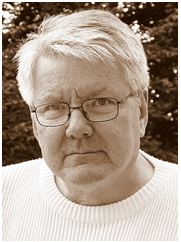 Questions prepared by Aage Myhre |
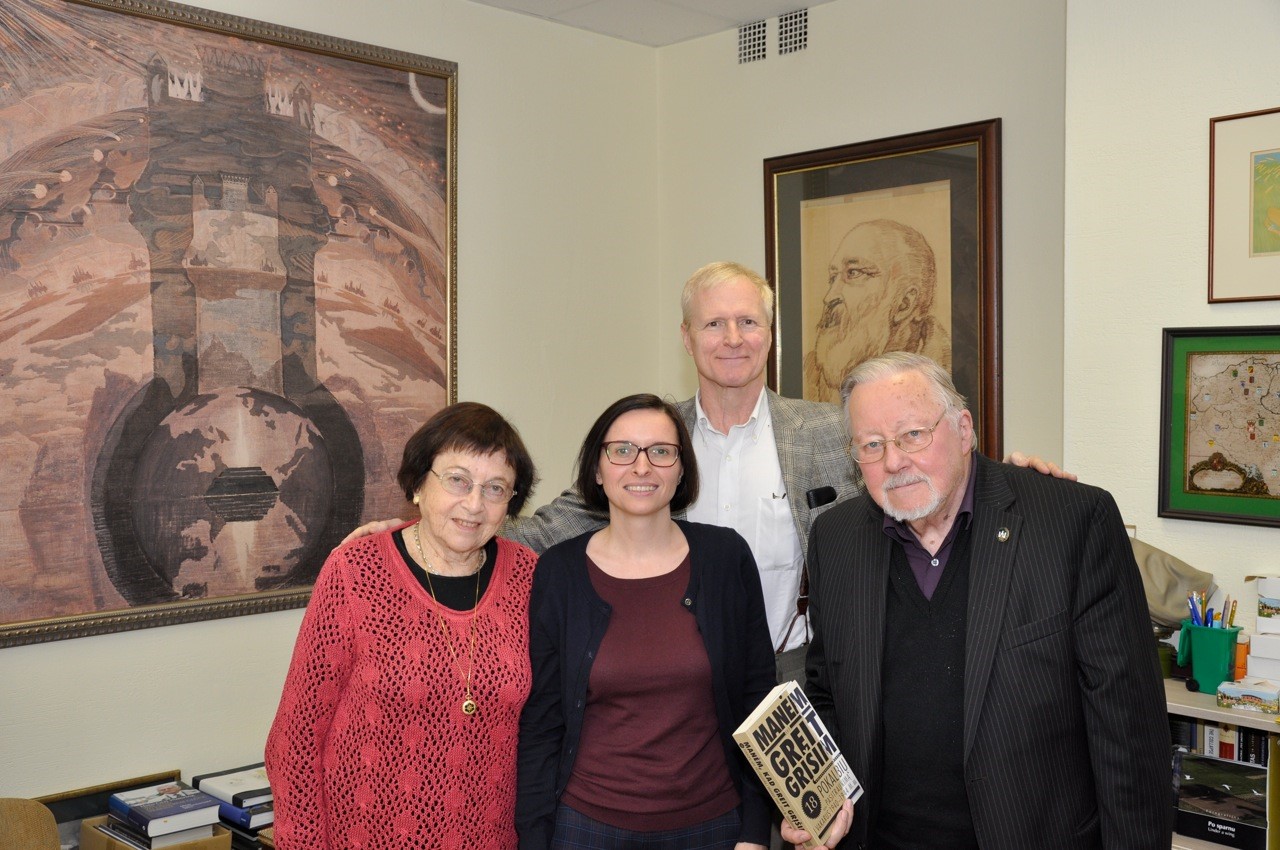
PROFESSOR IRENA VEISAITĖ AND PROFESSOR VYTAUTAS LANDSBERGIS AFTER THE INTERVIEW.
- Bookmark :
- Digg
- del.icio.us
- Stumbleupon
- Redit it
VilNews e-magazine is published in Vilnius, Lithuania. Editor-in-Chief: Mr. Aage Myhre. Inquires to the editors: editor@VilNews.com.
Code of Ethics: See Section 2 – about VilNews. VilNews is not responsible for content on external links/web pages.
HOW TO ADVERTISE IN VILNEWS.
All content is copyrighted © 2011. UAB ‘VilNews’.

 Click on the buttons to open and read each of VilNews' 18 sub-sections
Click on the buttons to open and read each of VilNews' 18 sub-sections 



Remarkable end enlightening.
Brilliant interview.
Thank you all.